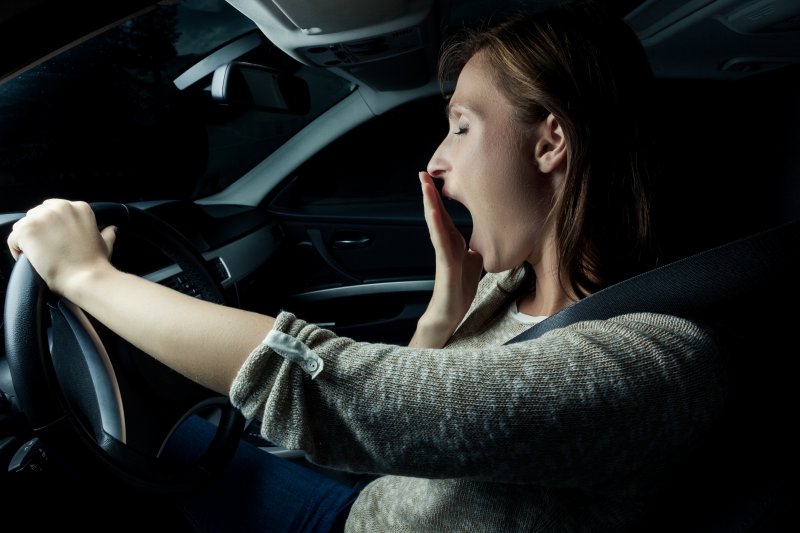
The risks of drunk driving are well known, but how often have you considered the dangers of drowsy driving? Not getting enough quality sleep can affect your body in a variety of ways, but the most obvious consequence is that you’ll feel tired during the day – and that exhaustion could easily lead to accidents while behind the wheel. If you suffer from a disorder such as sleep apnea that prevents you from getting quality rest, it’s extremely important to be aware of the impact that it could have on your driving so that you don’t delay in seeking treatment.
How Does Drowsiness Affect Driving?
According to statistics cited by the National Sleep Foundation, sleepiness has just as much of an effect on driving – if not moreso – as alcohol. And the issue is more widespread than you might realize. Roughly one out of six traffic accidents resulting in a death can be linked to drowsy driving. Furthermore, about 41% of drivers have fallen asleep in the past while driving.
Many people try to ignore or work past their sleepiness to get through their everyday tasks. Unfortunately, drowsiness tends to become all the more obvious when you are in the middle of a particularly repetitive task, which includes the act of driving down a familiar highway. When you’re sleepy, your vigilance, reaction time, memory, and decision-making processes all become impaired, and that in turn increases the chances of an accident while you’re driving.
The Link Between Sleep Apnea and Drowsy Driving
If you have sleep apnea, then you probably aren’t getting a full night’s rest even if you allow enough time for 7 to 9 hours of sleep. Sleep apnea interrupts your breathing multiple times during the night. When these pauses occur, the body is forced to wake itself up so that you can start breathing again. These awakenings are usually so brief that you don’t even remember them later, but nevertheless they still pull you out of the sleep cycle. That means your body isn’t enjoying the benefits of the later stages of sleep, which leaves you feeling tired when you wake up. Since sleep apnea episodes can happen multiple times every night, the disorder can dramatically increase your risk of accidents related to drowsiness.
What Should Be Done About Sleep Apnea and Drowsy Driving?
To make sure you’re at your best behind the wheel, you need to ensure that you get plenty of sleep every night. To do that, you need to have your sleep apnea treated as soon as possible. Oral appliances are often a good option as they can keep the airway open without the need for a noisy, bulky CPAP machine.
Get in touch with a sleep center near you if you think sleep apnea is keeping you up at night. Ignoring a sleep disorder for too long increases the chances of it affecting your life in extremely harmful ways. A good night’s rest is essential if you want to stay alert on the road!
About the Author
Dr. Mitch Conditt was personally diagnosed with obstructive sleep apnea in 2009. After he found lasting relief with oral appliance therapy, he decided to give his patients the same kind of help by specializing in sleep dentistry. Thanks to his 35 years of experience in dentistry, he has been able to help many people overcome the drowsiness that previously plagued their daily lives. To schedule a consultation, visit his website or call (817) 527-8500.
